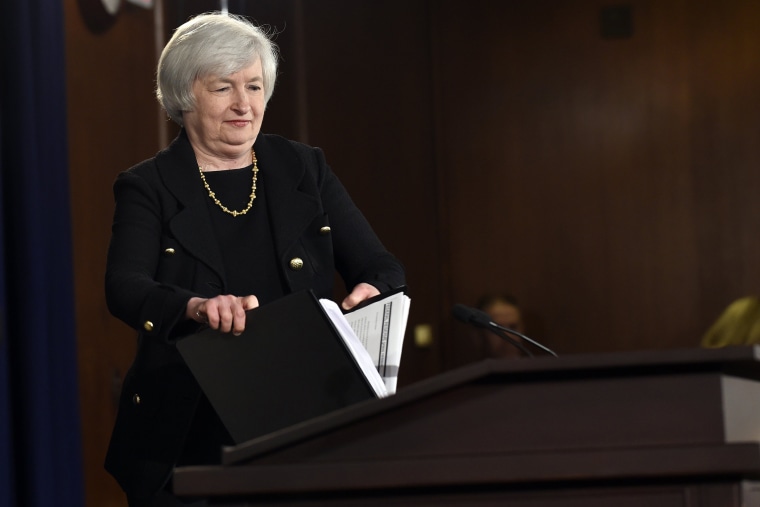The Federal Reserve announced Wednesday it would continue to keep interest rates near historic lows as the labor market and broader economy continue to recover.
Concluding two days of meetings this week, the Fed said that it would likely keep interest rates within the zero to 0.25% range "for a considerable time," particularly if inflation continues to remain below 2%. "To support continued progress toward maximum employment and price stability, the Committee today reaffirmed its view that a highly accommodative stance of monetary policy remains appropriate," the central bank said in its September statement.
The Fed said it expected economic growth to continue at a "moderate pace." But it cited ongoing weakness in the labor market in deciding to keep interest rates low, rejecting calls by some Fed officials to hike rates to thwart inflation.
"The labor market has yet to fully recover. There are still too many people who want jobs but cannot find them, too many who are working part time but would prefer full time work, and too many who are not searching for a job but would be if the labor market were stronger," Federal Reserve Chairwoman Janet Yellen said at a press conference.
At the same time, the Fed also outlined its plans for winding down its unprecedented stimulus program. The central bank said the economy had improved enough to warrant its ongoing process of scaling back asset purchases—the "quantitative easing" that began in 2008.
The Fed said it will scale back its monthly purchases of mortgage-backed securities from $10 billion to $5 billion starting next month, and to reduce its holdings of longer-term Treasurys from $15 billion per month to $10 billion per month. Yellen said it could take until the end of the decade for the Fed's balance sheet to return to normal.
The Fed reiterated long-term term goals of "maximum employment" and 2 percent inflation, but stressed those targets were not the only factors that would determine when it would raise rates. "Even after employment and inflation are near mandate-consistent levels, economic conditions may, for some time, warrant keeping the target federal funds rate below levels the Committee views as normal in the longer run," the Fed said.
The Fed also downgraded its economic outlook for 2015, predicting 2.6 to 3.0% GDP growth next year, down from its June projection of 3.0 to 3.2% growth in 2015. Yellen cited productivity growth, in particular, for being "pretty disappointing."
